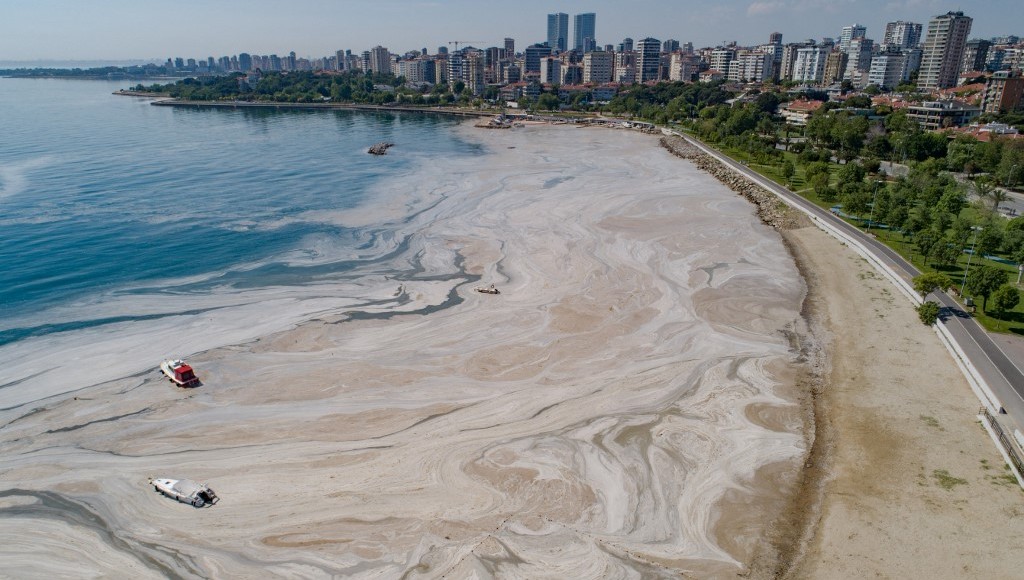The Turkish government has announced a disaster management action plan to save the Marmara Sea from a thick, slimy layer of mucus-like matter known as “sea snot,” which has raised concerns about the future of marine life and the fishing industry in the region.
The plan, unveiled by Environment Minister Murat Kurum at a meeting in the northwestern province of Kocaeli on Sunday, was developed in the wake of the spread of sea snot in the Sea of Marmara near İstanbul. Kurum said Turkey plans to designate the entire Sea of Marmara a protected area, reduce pollution and improve the treatment of wastewater from coastal cities and ships, the ineffective management of which has helped the sea snot to spread.
According to the action plan, standards for waste treatment facilities will be set again and waste dumped into Marmara will be reduced. The conversion of waste treatment plants will be completed in three years.
Kurum also called on local residents, artists and NGOs to join what he said would be Turkey’s biggest maritime clean-up operation, which will begin on Tuesday.
“Hopefully, together we will protect our Marmara as part of a disaster management plan,” the minister said, speaking from a marine research vessel that has been taking samples of the slimy substance.
“We will take all the necessary steps within three years and realize the projects together that will save not only the present but also the future.”
Kurum said the measures Turkey planned would reduce nitrogen levels in the sea by 40 percent, a move he said scientists believe will help restore the water to its previous state.
Experts blame pollution and climate change for the sea snot outbreak.
According to a report from Marmara Environmental Monitoring (MAREM), the main reason for the sea snot outbreak in the Marmara is untreated sewage, which leads the upper levels of the seawater to reach higher temperatures, leading to sea snot buildup.
The first time the sea snot problem was documented in the Marmara was in 2007. Turkey’s ruling Justice and Development Party (AKP) is being harshly criticized for ignoring environmentalists’ concerns and allowing damage to the environment and marine life by pressing ahead with giant construction projects.
